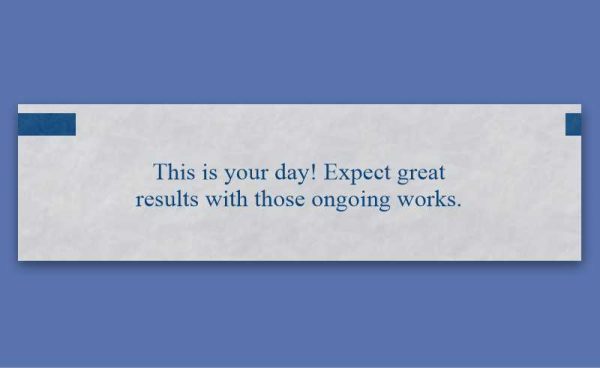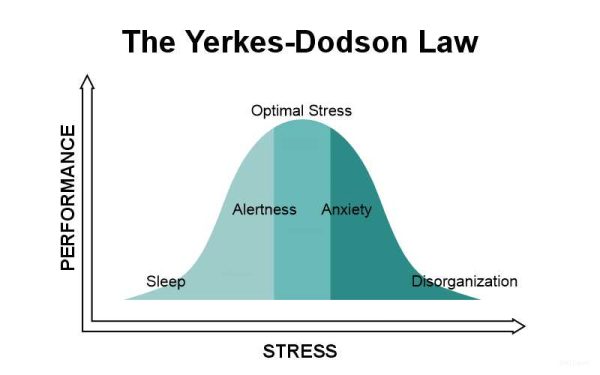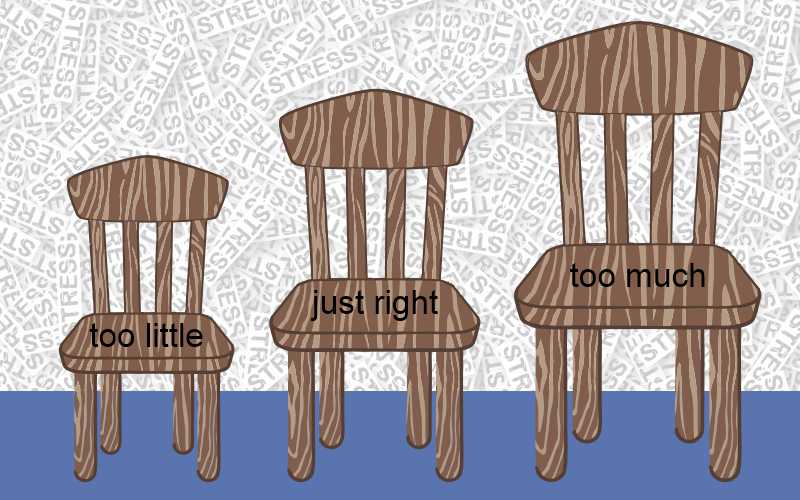Fortune Cookie Friday: Goldilocks Stress Levels
It’s been a rough few weeks for me. I have an ever-growing list of projects and tasks I need to complete and an ever-shrinking amount of time to complete them.
There are moments when I feel like I won’t be able to accomplish my goals, and then a fortune like today’s pops up.

I don’t give much credence to some of the fortunes. Yes, I realize that I have spent many years writing about them, and some do provide valid advice, but they can’t fix our problems. That’s up to us.
When I get a fortune like today’s, I consider it a reminder to stay positive. It’s kind of like a tiny paper cheerleader.
Keeping a positive attitude can be difficult when life weighs heavy on us. The trials and tribulations of work, relationships, and multiple crises covered by the media can make one scream at the top of their lungs—STOP!

We all go through periods where we feel like we can’t handle what’s on our plates. But it is okay to let some things go, too. We don’t have to drop the hardships altogether, but we can ease back on our expectations.
I have a habit of setting two deadlines for projects. One date is the official date—it absolutely has to be done by then. The other
date is a few days or weeks earlier. If I meet my earlier deadline, I have a little breathing room to triple-check my work or sit back and relax.
As you can see, I’ve put more pressure on myself even though it wasn’t necessary. I find it helps kick me into gear and do a better job.
Since we can get complacent with easier tasks, the increased pressure can inspire us to work harder. This can lead to improved outcomes. But if the job is more difficult, less stress is optimal for achieving our goal.
This relationship between stress and task performance comes from the Yerkes-Dodson law. The law states that “there is an empirical relationship between stress and performance and that there is an optimal level of stress corresponding to an optimal level of performance.”
Robert Yerkes (pronounced “Yerk-EES”) and John Dodson discovered the relationship in 1908, and it is sometimes presented as a bell-shaped curve.

Stress can play havoc with our performance, memory, and emotions. So, we need to monitor the stress we feel if we want to do our best.
Think of it this way: you want to cook an omelet. The eggs will take longer to cook and dry out if the heat is too low. If you have the heat too high, they will burn before they cook all the way through. But if you apply just the right amount of heat, they will cook to perfection.
I like to think of the Yerkes-Dodson law as “Goldilocks Stress Levels.” We need enough to inspire us to get the job done well but not too much to discourage us from giving up.
Cheerleader moments help ease some of the stress in our lives to make things bearable, and we can continue working toward our goals.
Today’s fortune doesn’t guarantee that today is “my day” and I will reap great rewards, but it can remind me to ease up a bit and not let the stress get to me.




